The influence of controversial preacher Zakir Naik
- Published
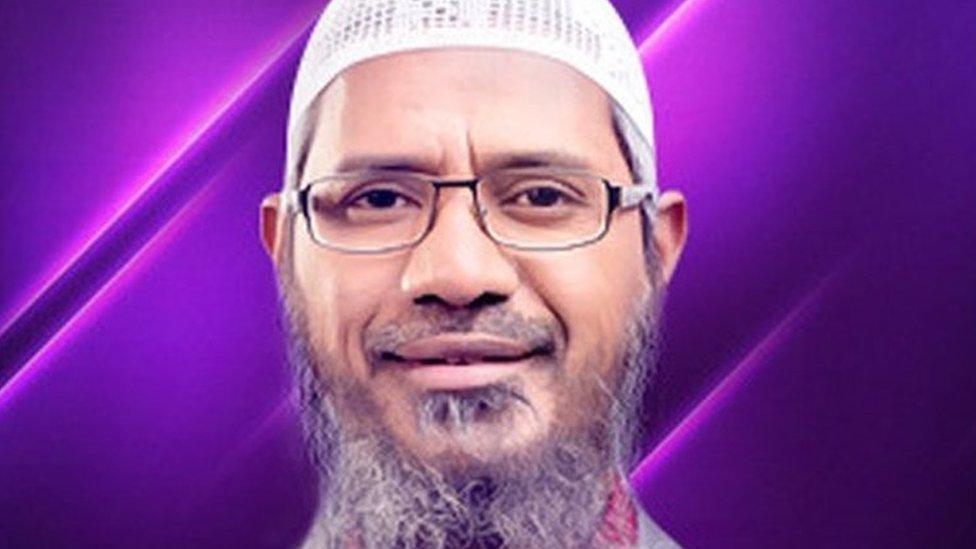
Zakir Naik has courted controversy by aggressively advocating radical Islam
The controversial Indian Islamic preacher, Zakir Naik, has been accused by the government of causing disaffection along religious lines and inciting youth through speeches. The BBC's Zubair Ahmed went to Mumbai to find out more about him and the impact of his preaching.
Zakir Naik's Islamic International School, located in a crowded Mumbai suburb, could be easily missed due to the fact that it is partially hidden by trees and high walls.
Although both boys and girls studied there, the two sexes were not allowed to mix.
The classrooms on the first floor were for girls, all of whom were clad in black burka. The boys, wearing skull caps, occupied the ground floor.
The school, now shut, was modelled on the preacher's own hardline brand of Islam, but much like Mr Naik himself, this is mixed with "modernity". In this case, a Cambridge IGCSE curriculum.
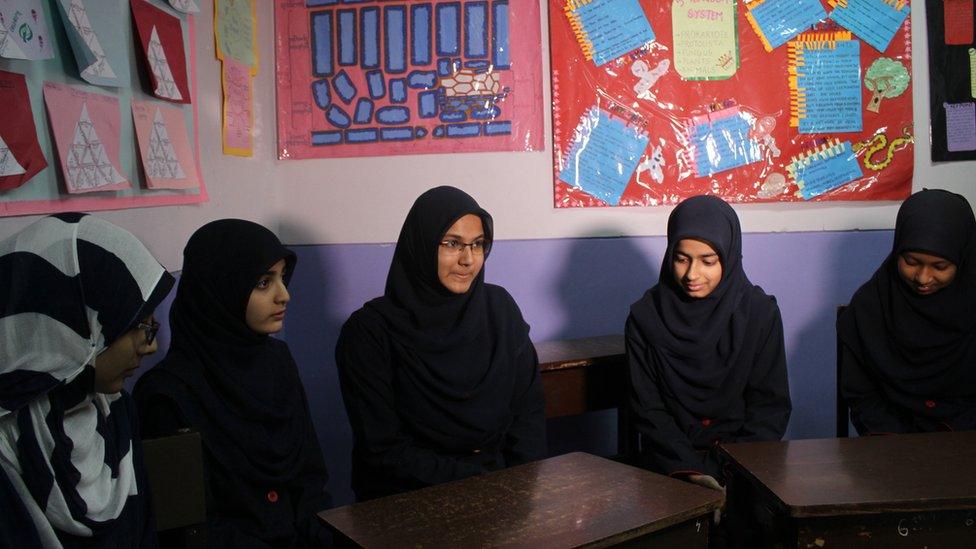
The students at the Islamic International School are proud of their "modern" curriculum
Mr Naik has courted controversy by aggressively advocating fundamentalist Islam.
He has always refused to denounce al-Qaeda leader Osama Bin Laden and also famously dismissed the 9/11 terror attack in New York as an "insider job". However, these speeches are delivered in fluent English. He is always attired in a suit and tie, matched with a Muslim skull cap.
And he has a massive following.
Bangladesh to ban Islamic TV channel
Indian preacher is banned from UK
He has travelled widely in Africa and the Middle East and addressed large gatherings, while his lectures have been attended by heads of governments and heads of states. He is also believed to have huge followings in the Gulf countries as well as Pakistan, Africa, Indonesia and Malaysia.
And his impact is considerable.
Many detained al-Qaeda activists have reportedly told authorities that he had been a huge influence on them. He has been living a self-exiled life in the Middle East after being blamed for "influencing" the Dhaka terror attackers on 1 July this year. His offices and schools have since been raided and sealed.
The Indian government is likely to ask him to return to the country to help with their investigations.
Mr Naik believes that spreading the word of Allah should be the mission of every Muslim.
Many in the community call him and his followers "Wahhabi", an ideology which advocates a return to the era of Prophet Muhammed.
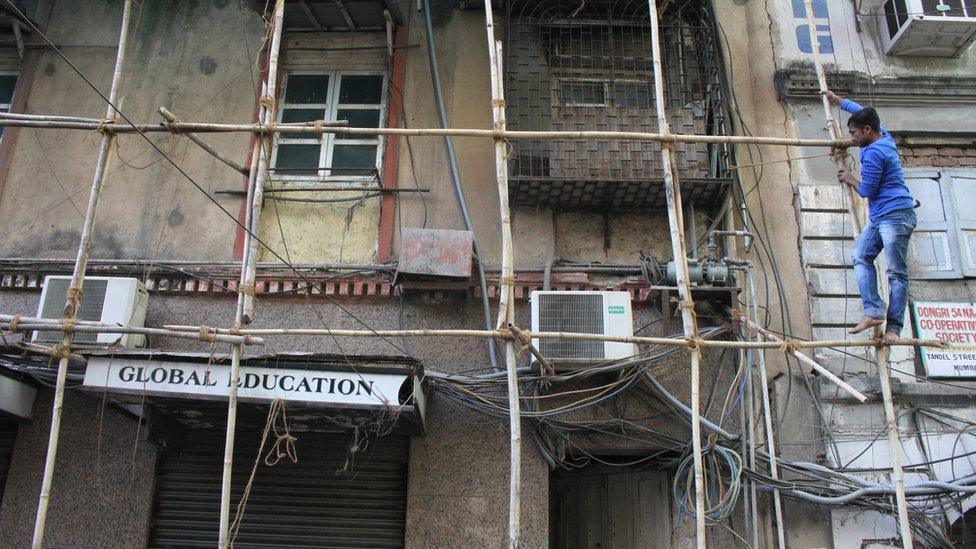
All the offices belonging to Zakir Naik have been shut
Amir Rizvi, a designer and an Islam enthusiast, has closely followed Mr Naik's progress as a preacher.
"Zakir Naik has made himself into a brand. He is a package. His image is that of a man who is western-educated, with a medical background and wearing suit and tie. He has also cultivated the image of a man of Islam. He sports a beard and wears a skull cap"
Mr Naik's journey to becoming one of the world's most controversial preachers - he has a popular television channel called Peace TV, which is now banned in Bangladesh - has been an unusual one.
He was born in 1965 in Dongri, a predominantly Muslim locality in Mumbai, into a family of doctors.
Dongri was once a playground for smugglers, underworld dons and gangsters, and has been unable to shed its reputation of notoriety.
It has also been home to the city's most infamous underworld figures including Dawood Ibrahim.
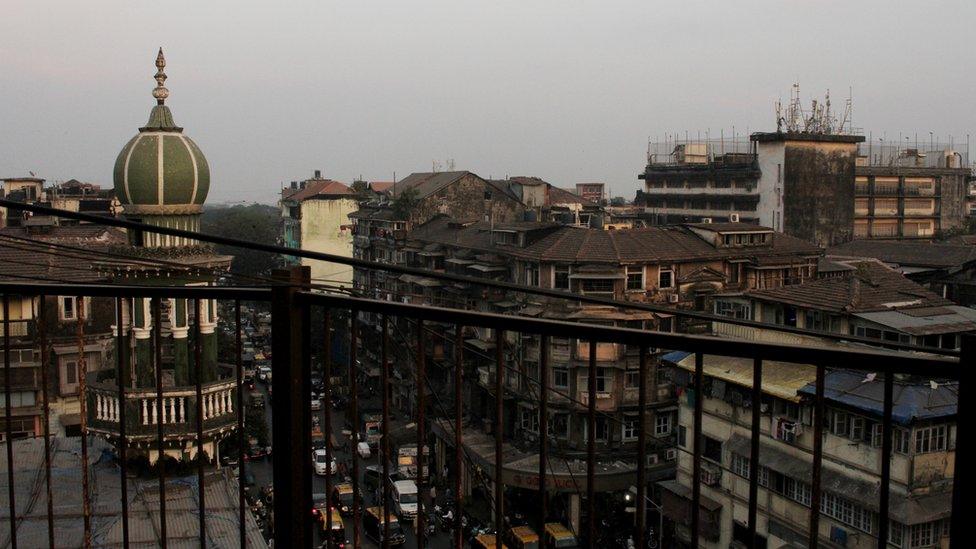
Dongri has been unable to shed its notorious reputation
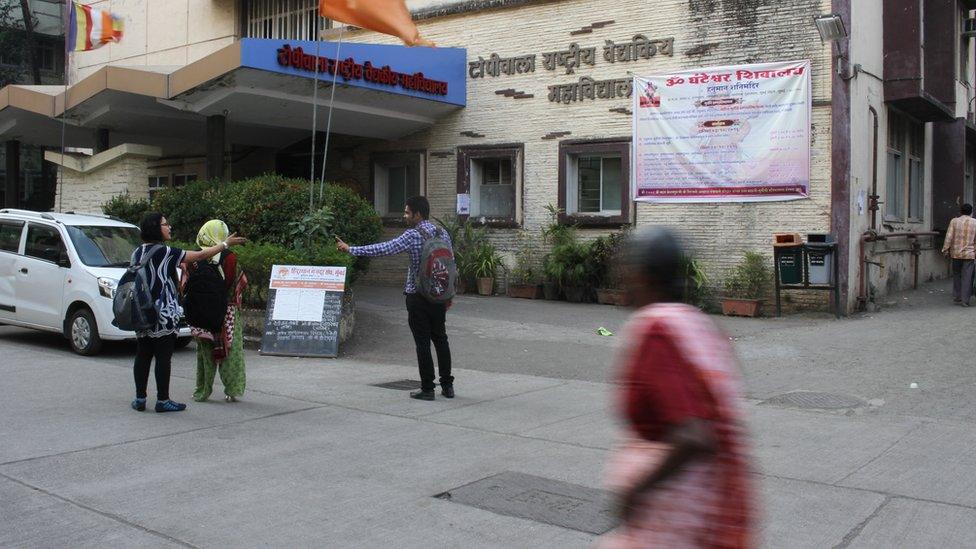
The Topiwala National Medical College where Zakir Naik studied
His father, who died recently, was also a doctor and so is his older brother.
Mr Naik, who attended St Mary's High School also followed the family profession, choosing to study medicine at the Topiwala National Medical College in Mumbai.
He founded the Islamic Research Foundation in Dongri in 1991 soon after abandoning his medical practice.
'Spectacle'
Saleem Yusuf, a former employee of Mr Naik's foundation, left him because he says he was never happy with the "spectacle" Mr Naik used to create on stage over the conversion of non-Muslims (into Islam). He once asked about it but he says he never got a satisfactory reply.
Mr Yusuf says he often felt uncomfortable with Mr Naik's speeches in which he allegedly made fun of other religions.
But both Mr Yusuf and Mr Rizvi despite being self-declared opponents of Zakir Naik, say they believe banning him and his institutions is "unjustified and anti-democratic".
Mr Naik's followers believe he might be arrested if he returns to India. But he will look at his school with some satisfaction. He is influencing a whole new generation of Muslims who think and talk like him.